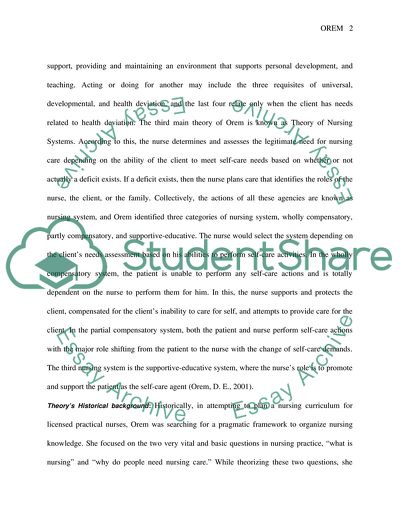Cite this document
(Orems Theory Of Nursing Coursework Example | Topics and Well Written Essays - 1500 words, n.d.)
Orems Theory Of Nursing Coursework Example | Topics and Well Written Essays - 1500 words. Retrieved from https://studentshare.org/nursing/1712489-orems-theory-of-nursing
Orems Theory Of Nursing Coursework Example | Topics and Well Written Essays - 1500 words. Retrieved from https://studentshare.org/nursing/1712489-orems-theory-of-nursing
(Orems Theory Of Nursing Coursework Example | Topics and Well Written Essays - 1500 Words)
Orems Theory Of Nursing Coursework Example | Topics and Well Written Essays - 1500 Words. https://studentshare.org/nursing/1712489-orems-theory-of-nursing.
Orems Theory Of Nursing Coursework Example | Topics and Well Written Essays - 1500 Words. https://studentshare.org/nursing/1712489-orems-theory-of-nursing.
“Orems Theory Of Nursing Coursework Example | Topics and Well Written Essays - 1500 Words”, n.d. https://studentshare.org/nursing/1712489-orems-theory-of-nursing.


